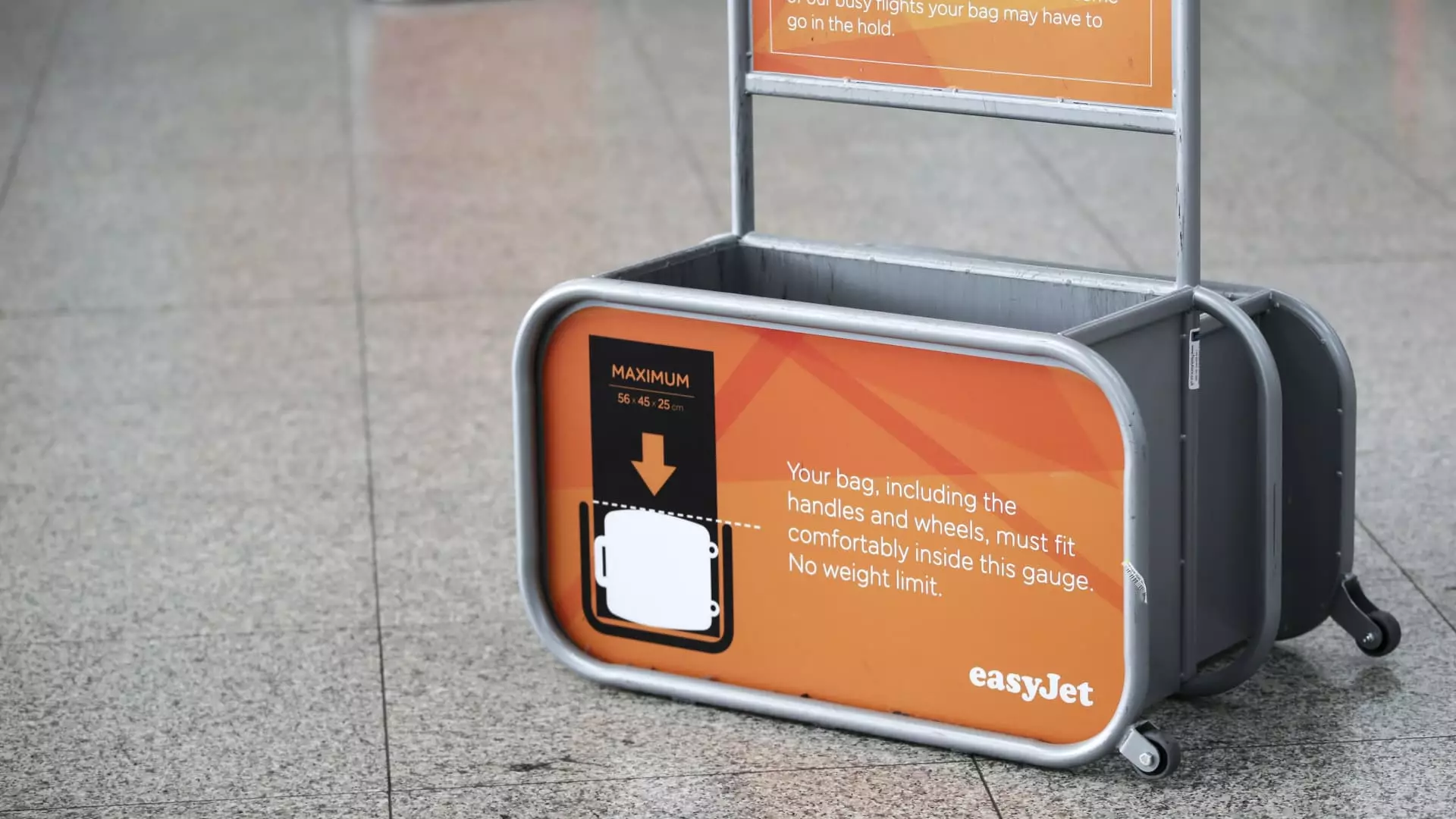EasyJet has recently reported a significant milestone in its financial performance, revealing that the company generated £3.59 billion ($4.5 billion) from ancillary charges in the fiscal year leading up to October. This figure includes fees collected for various add-ons, such as extra baggage, seat selection, and priority boarding, essential for maintaining profitability in a fiercely competitive airline market. Notably, this ancillary revenue has surged by 22% compared to the previous year, reflecting not only EasyJet’s strategic pricing models but also a broader industry trend towards unbundling services. The airline’s ancillary revenue from the flight sector specifically reached an unprecedented £2.46 billion, representing a 13% increase—a clear indication that customers are willing to pay more for personalized travel options.
The financial techniques employed by EasyJet are in alignment with a growing trend among various budget airlines to offer a lower base fare while monetizing additional services. This model has allowed carriers to compete aggressively on price, yet it has also ushered in challenges with regulatory bodies as seen recently with Spain’s Ministry of Consumer Rights. The ministry imposed fines on EasyJet and several other low-cost airlines, citing “abusive practices” related to ancillary charges—specifically targeting fees for hand luggage and the provision of seats for family members traveling together. EasyJet was notably penalized with a €29 million fine, igniting a robust backlash from the airline’s leadership.
EasyJet’s CEO, Johan Lundgren, was quick to respond to the fines, arguing that the penalties are misaligned with European law. In a turn of phrase that underscores his defense of ancillary charges, Lundgren emphasized the unfairness of restricting optional services for consumers. He pointed to the fact that a substantial segment of EasyJet’s customers—about one-third—opts not to purchase any add-on services. This statistics arguably reinforces the airline’s position that such extras only affect those customers who choose to utilize them. Lundgren was firm in stating that these additional offerings are not merely revenue streams but essential services designed to cater to traveller preferences, allowing airlines like EasyJet to keep base fares low.
The punitive measures enforced by the Spanish government have sparked controversy within the European aviation sector. Airlines including Ryanair, Norwegian, and Vueling have joined EasyJet in vocally contesting the legitimacy of these fines. The shared sentiment among these carriers reveals an industry grappling with the balance between regulatory compliance and operational viability amid changing consumer demands. Ryanair has suggested that the public shaming of airfare models reliant on ancillary revenues is counterproductive, especially in an era where budget-conscious travelers are increasingly selective about their spending.
For EasyJet, the latest financial results depict a resilient recovery trajectory following the unprecedented disruptions caused by the COVID-19 pandemic. With a reported profit before tax of £610 million—up 34% year-on-year—the airline seems poised for continued success, leveraging strong demand for travel across Europe. The competitive dynamics within the sector are ever-evolving, particularly highlighted by rival Ryanair, whose recent report showed an 18% decline in half-year profits despite an uptick in passenger volumes. These contrasts underline the challenges that budget airlines face in navigating consumer sentiment amid ongoing economic pressures.
As EasyJet continues to defend its business model amidst regulatory scrutiny, it paints a vivid picture of an industry at a crossroads. The reliance on ancillary revenue is likely to persist, with airlines striving to maintain affordability while providing enhanced service options. The outcome of EasyJet’s disputes concerning fines could set pivotal precedents in the evolving relationship between European budget airlines and regulatory authorities. Ultimately, as consumer behaviors shift, the adaptability of airlines in their pricing models and service offerings will determine their capacity to thrive in an intensely competitive landscape.

